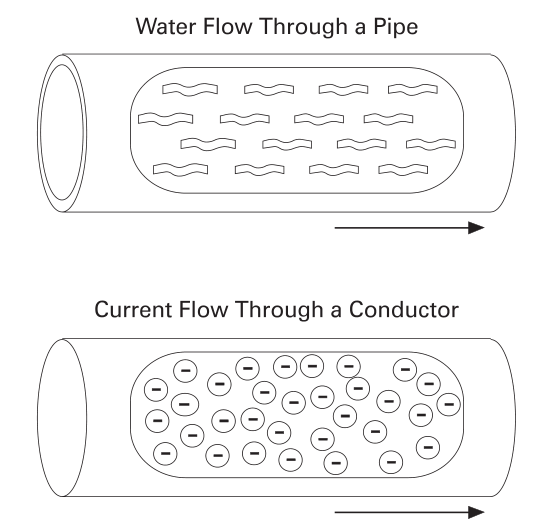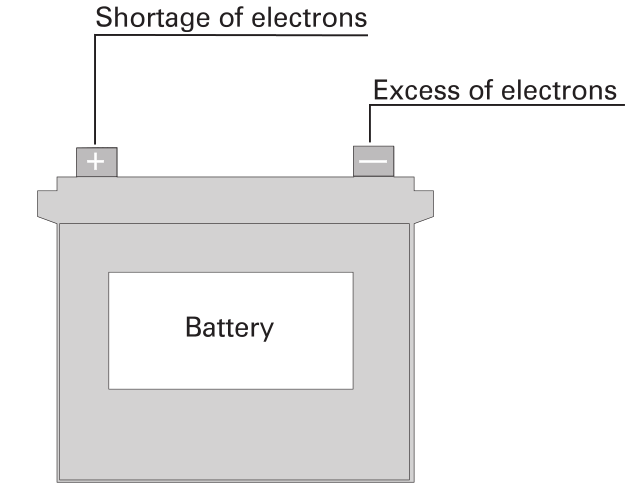Basic electricity:1.4 Voltage
1.4 Voltage
Electricity can be compared with water flowing through a pipe. A force is required to get water to flow through a pipe. This force comes from either a water pump or gravity. Voltage is the force that is applied to a conductor that causes electric current to flow.
Electrons are negative and are attracted by positive charges. They will always be attracted from a source having an excess of electrons, thus having a negative charge, to a source having a deficiency of electrons which has a positive charge. The force required to make electricity flow through a conductor is called a difference in potential, electromotive force (emf), or more simply referred to as voltage. Voltage is desig- nated by the letter "E", or the letter "V". The unit of measurement for voltage is volts which is designated by the letter "V".
Voltage sources
An electrical voltage can be generated in various ways. A battery uses an electrochemical process. A car?s alternator and a power plant generator utilizes a magnetic induction process. All voltage sources share the characteristic of an excess of electrons at one terminal and a shortage at the other terminal. This results in a difference of potential between the two terminals.
Voltage circuit symbol
The terminals of a battery are indicated symbolically on an electrical drawing by two lines. The longer line indicates the positive terminal. The shorter line indicates the negative terminal.
Units of measurement for voltage
The following chart reflects special prefixes that are used when dealing with very small or large values of voltage:
| Prefix | Symbol | Decimal |
|---|---|---|
| 1 kilovolt | 1 kV | 1000 V |
| 1 millivolt | 1 mV | 1/1000 V |
| 1 microvolt | 1 μA\V | 1/1,000,000 V |


